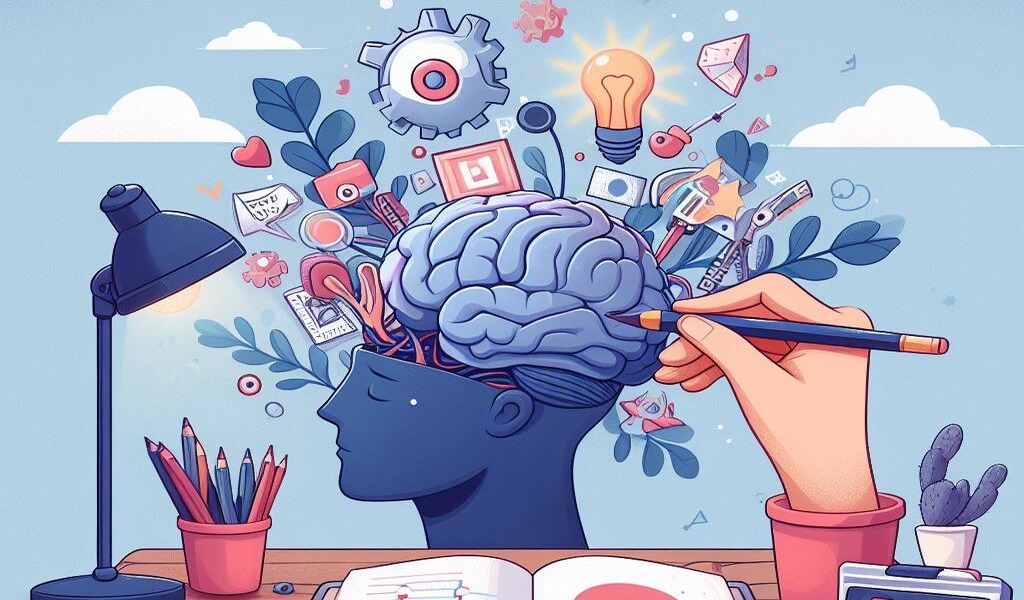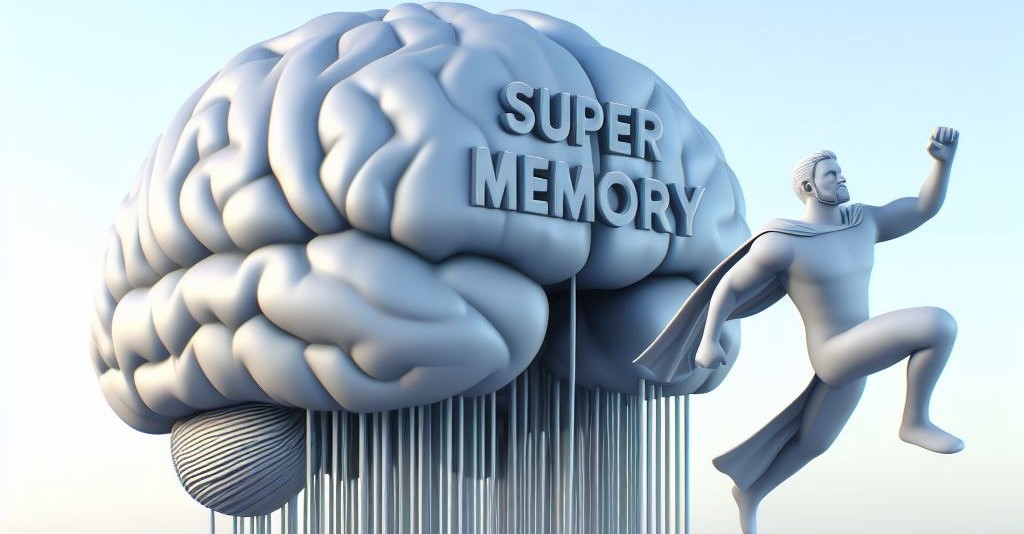Although mental stamina has many dimensions to discuss, here in this article we will specifically stick to improving the duration of memorization/remembering for a longer time. i.e. How long you can study?
In today’s world, which is full of distractions —from constant flowing notifications on our Smartphones, the flood of emails, or the never-ending to-do lists. It has become extremely difficult to focus for longer periods. But what if you could teach your brain to concentrate better, for a longer time and improve the efficiency of the brain by pushing limits of mental stamina? That’s where “Mental stamina” word needs to be understood and learned about. Without knowing it, you will escape the secret to increase your memory and pace up your I.Q.
At a Glance
Just as we all have different levels of physical stamina, we too have different levels of mental stamina. Most importantly, just as physical stamina can be improved with proper guidance and practice, mental stamina can be improved through memory training.
Also, without enough mental stamina, your brain can quickly feel “full,” as if it has hit a wall. This makes it harder to retain information or get work done efficiently. But the good news is that anyone can improve their mental stamina with consistent effort.
Let’s break it down part by part in the easiest way with examples:-
Mental Stamina
Mental stamina is the ability of the brain to stay focused and engaged in a task for a specific duration without experiencing mental tiredness or feeling mentally fatigued to continue further.
The more hours you are capable of studying or engaging in mental activity, the more stamina you have. But there are no fixed milestones or measurements to compare between two people. However, it can roughly be predicted with time dimensions as to how good your mental stamina is.
To understand it more deeply, let’s understand with an example – Imagine you’re preparing for an important exam. At first, you might be able to focus easily for the first 30 minutes, but after an hour, your mind starts to wander, and it becomes harder to concentrate. It feels like to take a break, it feels as if your mind is overloaded, like a sponge that has soaked up too much water. This point is the end of your mental stamina or duration of the mental stamina, where your brain starts to struggle to maintain focus, marks the current limit of your mental stamina—the threshold beyond which your mental endurance begins to deteriorate.
Much like building physical strength through a consistent workout routine and exercise, mental stamina can also be enhanced with regular training. By following a structured approach and learning effective techniques, such as those taught and trained by OSM (Optimised Skilled Methods) Memory, you can gradually improve your brain’s capacity to focus and stay engaged for longer periods. Just as physical training strengthens muscles, mental exercises strengthen your ability to concentrate and think more clearly without feeling fatigued.
Why Does Mental Stamina Matters So Much?
When we study or try to memorize something, our brains need time to settle into a focused state. At first, it might feel a bit tough to concentrate, and distractions can easily pull us away. This initial period is like warming up before you start exercising. The more mental stamina you have, the longer you can stay focused without feeling tired or needing frequent breaks.
Think about it this way: the longer you can keep your mind on a task, the faster you reach a state called “flow.” Flow is when you’re fully absorbed in what you’re doing, and distractions seem to disappear. When you reach flow quickly and stay there longer, you get more done in less time. You don’t have to keep getting back on track after every little distraction, which means your study or work sessions become more efficient and effective.
Having good mental stamina also helps you remember information better. When you stay focused for longer periods, your brain can process and store information more effectively. This means you’ll understand concepts more deeply and retain them for longer, whether you’re preparing for an exam, working on a project, or learning something new.
In today’s world, where distractions are everywhere—from social media notifications to noisy environments—mental stamina is a valuable skill. It allows you to push through the initial tiredness your brain feels and keep going even when it wants to take a break. By building your mental stamina, you can enhance your ability to focus, stay productive, and achieve your goals more easily.
In simple terms, mental stamina helps you make the most of your time and effort. The more hours you can study or memorize without getting mentally exhausted, the less time you spend fighting distractions and the more you can accomplish. This leads to better results, whether you’re a student, a professional, or someone who loves learning new things.
Building mental stamina is like training a muscle—it takes time and consistent effort. But the good news is that anyone can improve their mental endurance with the right strategies and practice. By doing so, you’ll find it easier to stay focused, remember more, and tackle challenges with confidence,
Is Mental Stamina Born or Built? How Can It Be Improved?
Mental stamina is not a potential that is born but is developed with practice. However, the time needed for individuals to develop it varies. Just as physical strength improves with consistent training, mental stamina strengthens as we regularly challenge our minds to focus for longer periods. Some may find it easier to build, while others may need more time, but the key is persistence. With the right techniques, such as gradual focus exercises and regular mental challenges, anyone can improve their mental stamina over time.
How to Improve Mental Stamina?
Now that we’ve established that mental stamina is trainable, let’s dive into how exactly you can improve it. Here’s a real-world example that will make things clearer.

The Case of Shivam: A Real-World Example
Meet Shivam, a 12th-grade student who, like many others, often struggles to stay focused during his study sessions. One evening, after a light dinner at 8:00 PM, Shivam sat down to study physics at 8:10 PM. He felt energized at first, but by 9:10 PM, he started feeling mentally tired. His brain seemed full, much like an overflowing glass of water. “Maybe I’ll wake up early tomorrow and study at 3:45 AM,” he thought as he patted himself on the back and decided to call it a day.
Shivam’s case isn’t unique. Many of us hit a mental wall after about an hour of focused work, thinking that we’ve done enough. But what if there were a way to push past that wall, just as we push through the last rep at the gym?
Vikas, another student, felt tired and sleepy but pushed himself. “No issues. Let me continue for 15 more minutes,” he said. But after those 15 minutes, at 9:25 PM, he felt so overwhelmed that he decided to stop, closed his books, and went to sleep.
Munish, another parallel student, kept studying continuously for 4 hours, uninterestedly. At 12:10 AM, he felt tired, stopped, and went to sleep.
Vikrant, another student, felt the same as Shivam but pushed himself till 9:25 PM. He felt like giving up but, as Vikrant is a dedicated student, he decided to study like Munish today and pushed himself till 10:00 PM. Vikrant studied longer than usual, but his brain’s efficiency to understand and solve problems worsened. Hardly anything was going into his brain. Pushing too hard like Vikrant did in one day didn’t work either.
Analysis of Their Mental Stamina
I hope now you have understood a little about mental stamina.
Let’s now decode the cases of Shivam, Vikas, Vikrant, and Munish and how their different levels of mental stamina caused benefits and harm to each of them individually.
Shivam is an average student, and there is a lot of possibility that he can raise his bar to become better than an average student. However, his very ordinary mental stamina level pushes him to improve procrastination. He avoids pushing himself for too long, which helps him maintain productivity and balance.
Now tell me, is there any possibility that Shivam will wake up at 4:00 AM? (Not because he wanted to wake up early but because he wanted to complete yesterday’s study quota). Even if he wakes up at 4:00 AM, he will likely say:
- “Let me sleep for 5 more minutes.”
- “I will make up for this by studying longer later in the day.”
Conclusion on Low Mental Stamina

Low mental stamina often leads to procrastination, allowing it to grow and dominate.
Vikas:
Vikas is no different from Shivam, except that he at least tried to push himself for a longer time.
Munish:
While writing this article, I too felt the urge to stop writing or postpone it. But one thing is certain: once we get into a mental flow, it’s easier to continue and avoid distractions. I am holding on with you, and I will not stop writing until I finish.
Mental stamina allows us to stay focused, but pushing too far can lead to brain fatigue. This is exactly what we saw with Munish and Vikrant.
Pushing Too Hard
Now, let’s return to Munish and Vikrant. Both tried to push themselves beyond their limits, but only Munish managed to do so consistently. He studied for 4 hours daily, making it his habit. Over time, his stamina increased, and his brain adapted to longer study sessions without losing focus. Munish wasn’t a genius; it was his dedication that increased his stamina.
Vikrant, however, pushed himself but without proper guidance. This caused him to believe that he couldn’t grow his mental stamina. He didn’t give his brain time to adjust, and as a result, he struggled with focus and procrastination.
The Power of Habit and Dedication
The key to mental stamina lies in building a habit:
- The habit of losing daily makes you a loser.
- The habit of winning daily makes you a winner. (Not just in one day, but consistently over time.)
Conclusion:
Munish, though not a genius, was able to achieve long concentration spans and outperformed others with the right training and guidance.
Vikrant, on the other hand, wanted to shine like Munish but struggled due to the wrong approach. He believed pushing himself for one day would yield results, but it led to brain fatigue and failure.
Final Thoughts
To build mental stamina, it’s crucial to avoid pushing yourself too hard in a single day. Instead, grow your stamina gradually over time. This is what helped Munish become better, while Vikrant’s rush led to setbacks.
A problematic situation often arises when we expect quick results, such as learning a difficult chapter in just a few minutes. Real progress in building mental stamina comes with time and consistent effort.





